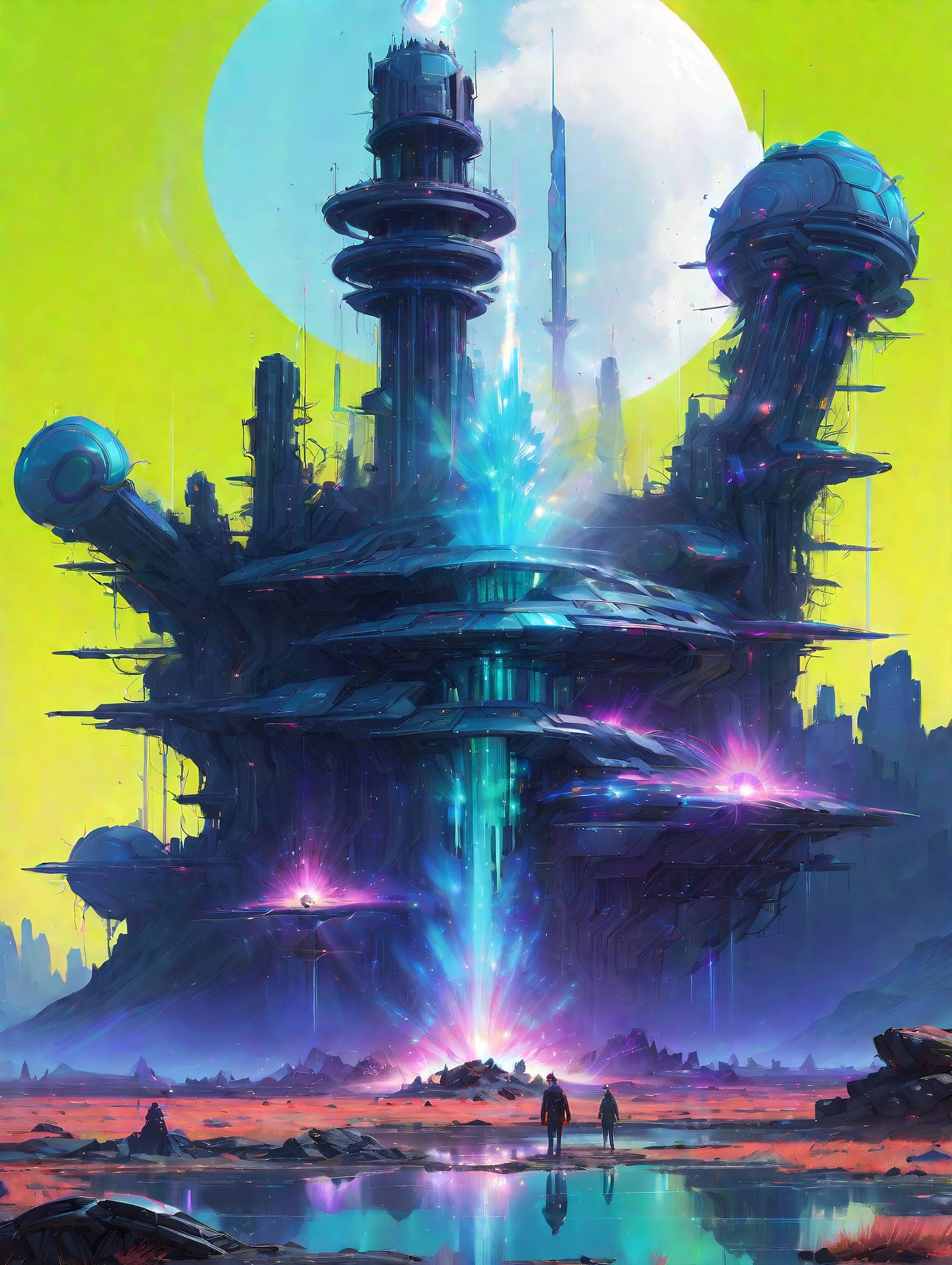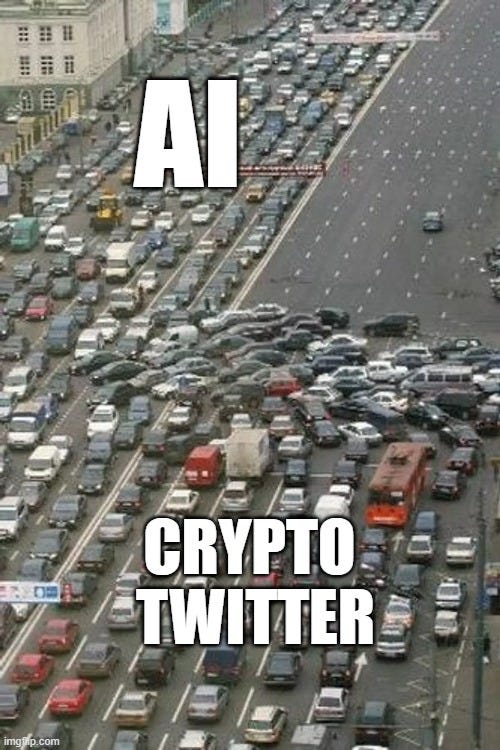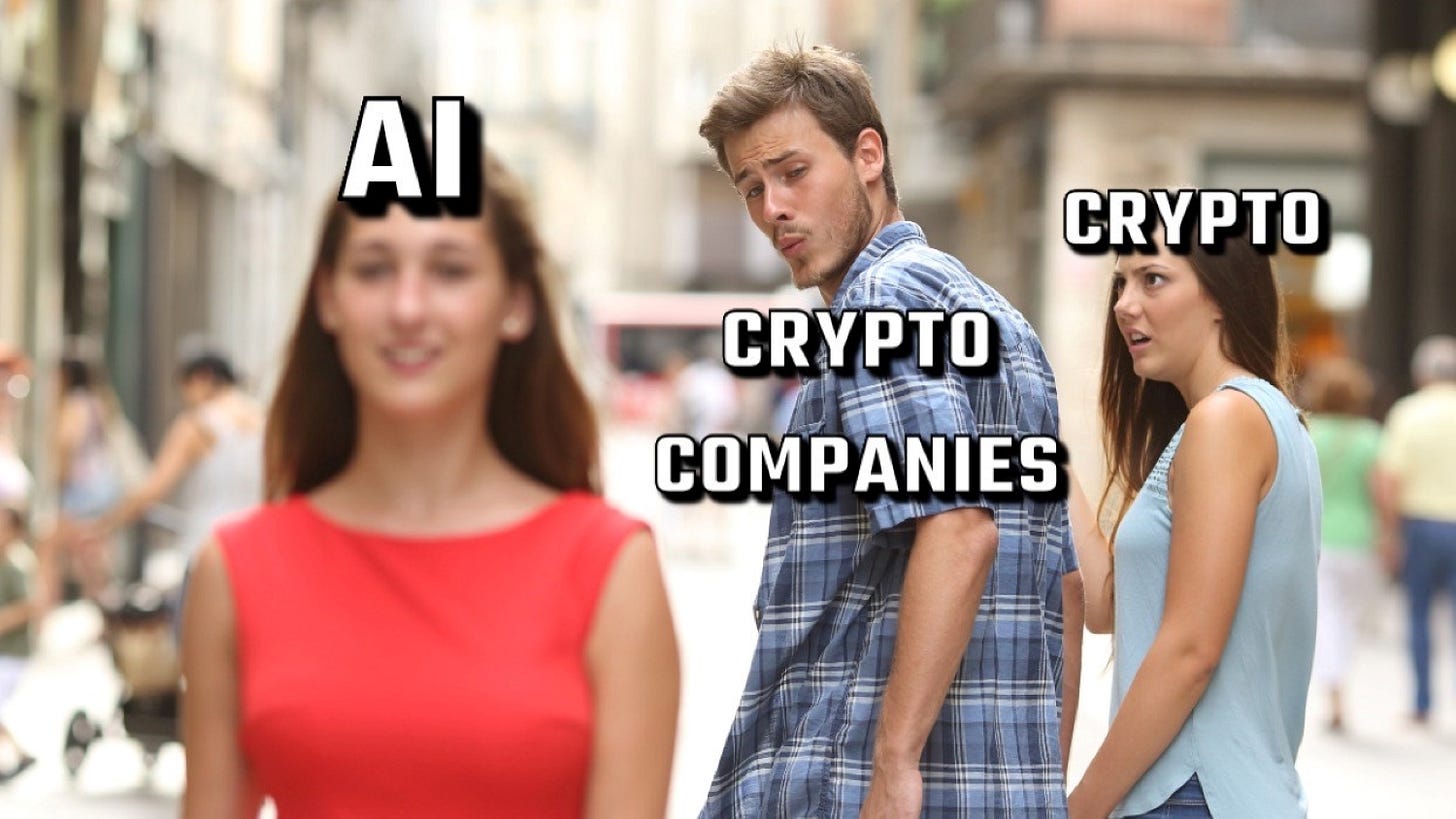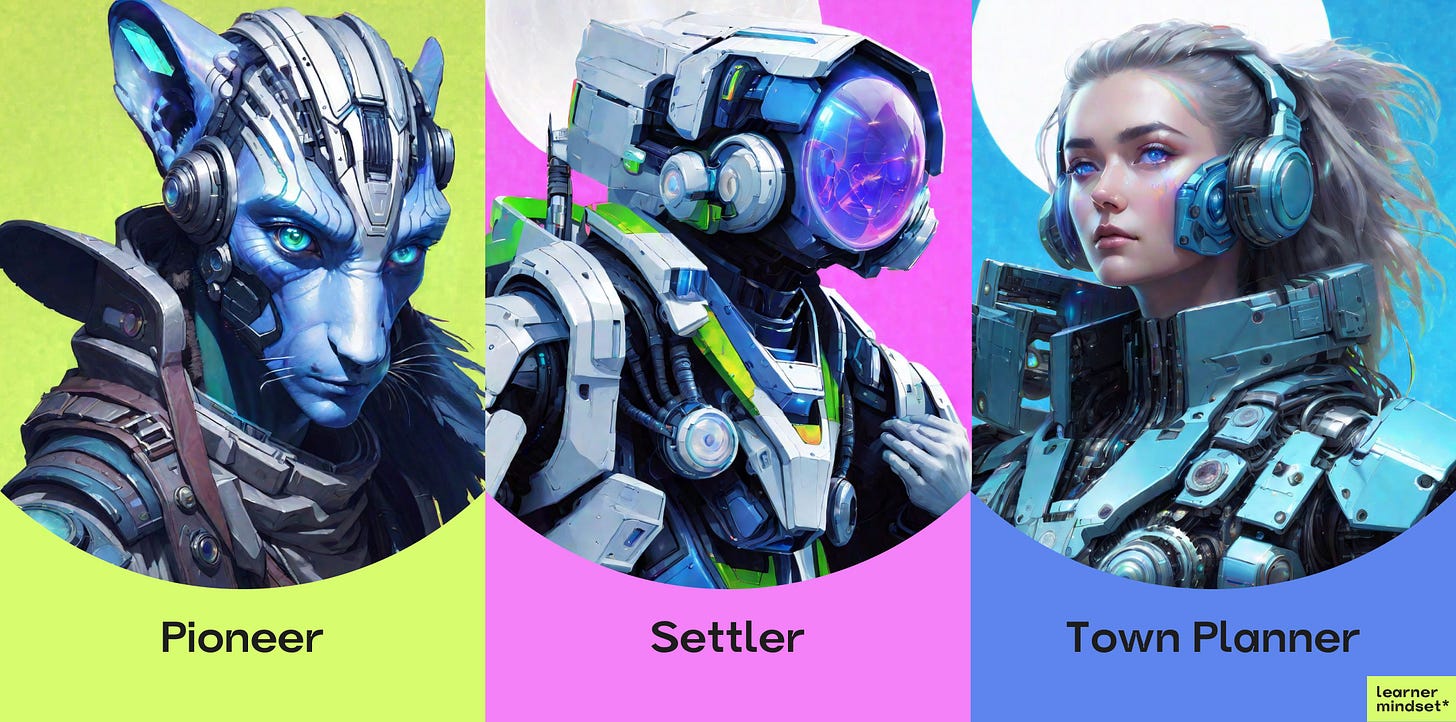The Next Big Thing
What do the Gartner Hype Cycle, Oregon Trail game, AI Craze, and your ability to learn quickly have in common?
The future is getting increasingly ambiguous. The world around us is in a state of constant change. Tech advancements accelerate these changes in a big way. And where's change, there's a potential. The grand majority of us would like to benefit from changes that happen around us. It’s a primal need to seek gain in any situation. We’ve evolved to do it mostly unconsciously. But, taking advantage of changes is not easy. It requires a complex process, and a set of particular skills to pull off successfully.
I believe you can build a certain skill set that will make you better prepared for the unforeseeable future. It will net you not only more confidence in the face of uncertainty, but also potentially open the door for unimaginable opportunities. Where should we start? Let’s begin with expanding our understanding of what the energy is.
Close To The Torrent
Imagine the torrent of massive energies flowing from the ground. Every past technological revolution, big and small — has been like a torrent suddenly erupting from the ground and providing massive benefits to those who are able to channel the energy flowing.
Because people tend to organize around spots of high energy. From the prehistoric ages, we’ve selected our settlements spots based on criteria like food abundance, soil quality, access to fuel (timber, coal, oil), etc.
As the time passed and humans became more and more sophisticated — we’ve begun to take advantage of, and gather around, even more exotic sources of energy. Energies that differ from the “primordial” stuff. Both in scope and nature. Across the millennia, something happened that made us no longer tied only to the physical sources of energy.
Fast-forward a couple of hundreds thousands of years, and we went from appreciating mostly the physical, to taking advantage of the conceptual in the form of technology, money, and digital. Technology breakthroughs opened up faster tracks for even faster growth. Entire civilizations were built on technological advancements, great minds migrated to techno-hubs of the Fertile Crescent, China, Alexandria, and Rome.
Later, we progressed further still. First towards industrialization, then towards money (great energy torrent), internet technology and finally AI today. I call these HEP — the „High-Energy Processes”. HEPs are global in nature. Early Web1 was a HEP, so was the MP3 revolution in music, or early Apple.
The individuals who were the first lucky ones closest to these high-energy torrents when they emerged — benefited immensely. It was a matter of luck yes, but also preparation, strategic thinking and great execution. People, entire families, and companies that knew how to correctly harness these torrents energies, made fortunes and built lasting legacies.
The Crypto and AI Craze
The most recent HEPs that I had occasion to experience first-hand were the Crypto NTF craze of 2021, and the AI Summer of 2022. The NFT craze reached its peak at almost $1.5b of volume traded weekly (Organic + Wash trading).
Many individuals made millions jumping on the Crypto bandwagon at the right time. (Most of them are losing money now, but I digress). The most interesting thing about this hype was that it hasn’t been anticipated. Look at the famous Gartner Hype Cycle for Blockchain. It doesn’t even mention the NFT tech.
This is an example of yet another characteristics of HEPs. The biggest HEPs effectively fly under the radar of even the most advanced research & consulting firms out there.
Not convinced yet? I have another example.
When the torrent eventually dried out, something remarkable happened.
And it happened not only violently fast, but also organically.
A considerable portion of the “Crypto Twitter” community quite instantly switched its focus to the new kid in the block – the Artificial Intelligence. And they literally fucking flocked it. A testament to this event has been captured by a multitude of memes.
Now, this change is a phenomenon interesting in itself, but let’s focus on the key question, which is — did Gartner anticipate this AI hype?
Let’s see what were they outlining in 2019, three years before the 2022 AI Summer.
Well… Nope, they did not. Not a clue. The commercialization and sudden OpenAIs’ ChatGPT LLM take off went totally below Gartner radar. To be fair to Garner, it went below 99% of radars out there. What is this trying to teach us? Aside from the conclusion that these graphs are useless for predicting The Next Big Thing, it teaches us humility that this kind of stuff is really hard to anticipate.
So even if Garner doesn’t know, is there any chance for a more curious-than-the-average-joe to foresee The Next Big Thing? And while we are at it, if you knew these two big opportunities were to happen — would you like to get on the bandwagon earlier? Probably you would like to. I know I would. But it’s likely you didn't. Allow me to explain why.
The Problem With the Future
We need to begin with taking the concept of the future into consideration. After all, HEPs are highly dynamic happenings once they finally pop up in our timeline. Working backwards, it’s relatively easy to say ‘yeah it makes perfect sense these emerged’. But unfortunately, as animals bound to the present, we don’t have this sort of clairvoyance to be able to confidently foresee such events. To better understand what are we dealing with here, let’s first discern the four types of the future:
Type 1 : Known/Known Future: This is like predicting the sun will rise tomorrow. We understand and can anticipate it. For example, if a new energy source arrives that's cheaper and more efficient, we know people would be naturally drawn towards it – that's just how things work.
Type 2 : Known/Unknown Future: This is when we have a sense of what's coming, but not the details. It's like knowing a major energy breakthrough is around the corner, but we're unsure what form it'll take and how dramatically it'll change the world.
Type 3 : Unknown/Known Future: This is about unseen changes we haven't thought about but make sense in hindsight. Perhaps, we haven't considered how the advent of a new energy source could shake up the world order, but once we think about it, it seems obvious because it's happened throughout history.
Type 4 : Unknown/Unknown Future: This is the realm of the unexpected and unprecedented. Just imagine, a totally new "High-Energy Process" like AI or something digital could create a future society we can't even fathom today! New industries might pop up, and ways of life could shift in ways we can't even dream of yet.
The strongest HEPs in history tend to emerge in the realm of Type 3 and Type 4 futures. And here’s the greatest challenge of identifying HEPs. The main problem with these future types is that despite what some people like us to believe — they are mostly unknown. Yet, in order to benefit from big changes, we need to somehow align ourselves with these futures.
If that’s the case – can we hope to anticipate new HEPs emerging? In practice no, in theory – yes. If you had an infinite energy source combined with a good algorithm, you could theoretically calculate all possible variables. You would have to do this for both the past and present. Then summarize them and extrapolate what’s most likely to happen next in the future. But we are not there yet.1
Alright, so we can’t predict. But don’t lose hope just yet. Let’s think optimistically about what other options do we have? What’s the second-best thing? Well, even though you can’t predict – you can prepare.
Now the question is: How the hell can we prepare for something that by its nature lives in the unknown and ambiguous domain? Well, let's see how you can use your natural curiosity to participate in these high-energy and wealth-creation processes the next time they emerge.
Learning to Set up a Tent
Now, I don't know how about you, but I would like to put myself in the position to be able to personally benefit from the next Hype Cycle – whatever it is. The next hype is just right behind the corner because the technology accelerates stuff and AI will accelerate the changes even more. Yuval Noah Harari – the historian, philosopher, the author of “Sapiens” remarks that:
We have no idea how the job market would look like in 10 years. We have no idea what skills will still be needed. You think you’re going to learn how to code because they’ll need a lot of coders in the 2030s? Think again. Maybe AI is doing all the coding. You don’t need any coders. You are going to, I don’t know… learn to translate languages, you want to be a translator. Gone. And we don’t know what skills will be needed.
So the most important skill is the skill to keep learning and keep changing throughout our lives, which is very, very difficult. To keep reinventing ourselves. Again, it’s in a way a spiritual practice, to build your personality, to build your mind as a very flexible mind. Traditionally, people thought about education like building a stone house with very deep foundations.
Now it’s more like setting up a tent that you can fold and move to the next place very, very quickly. Because that’s the 21st century.
The only way you can personally benefit from these rapid changes is to become a flexible and fast learner. And be ready to quickly join the wave when the disruptions take place. The most important skill young people need to learn is the skill to keep learning new things. No one can predict what the world will look like in 10 years. Build your mind as a flexible mind.
Let’s summarize briefly. We understand the context and characteristics of HEPs. We know the torrents' emergence can’t really be predicted. We are aware that a good dose of ‘mind flexibility’ is required to walk this path – and that it’s not easy. Yet, this shouldn’t discourage us from pursuing the ways how might we personally take advantage of these hype cycles. Now we should be ready to strategize a bit to uncover what you could do Today, to be ready for Tomorrow.
Your Caravan
One way to personally and financially benefit from the emerging HEPs is to find your way near it before its popularity explosion. The ideal time for it is when the torrent is just forming or emerging. Let’s see how this could unfold.
This reminds me about a particular game — The Oregon Trail. It’s about the life of a 19th century pioneer on the Oregon Trail. Imagine for a second that you are the pioneer leading a caravan that travels across the great plains.
You are searching for a good place to settle. You haven’t found it yet, but you persevere. Then, one day, your scouts report that something interesting is happening at the spot X, just 2 days of trip from where you are. You decide this might be a HEP emerging. Taking advantage of HEPs requires from you to move your ‘caravan’ fast from point A to X. The sooner you can reach the torrent – the more likely you are to benefit from its energy.
Pick Your Camp
Depending on your existing skill set and talents, you will want to get to the right camp once you have arrived at the HEP. Yes, there are going to be camps, and yes, the camps are not equal. The archetypes are governed by the principles established by one of my favorite contemporary strategists – Simon Wardley.
There are three archetypes available, each one establishes themselves differently in relationship to the HEP.
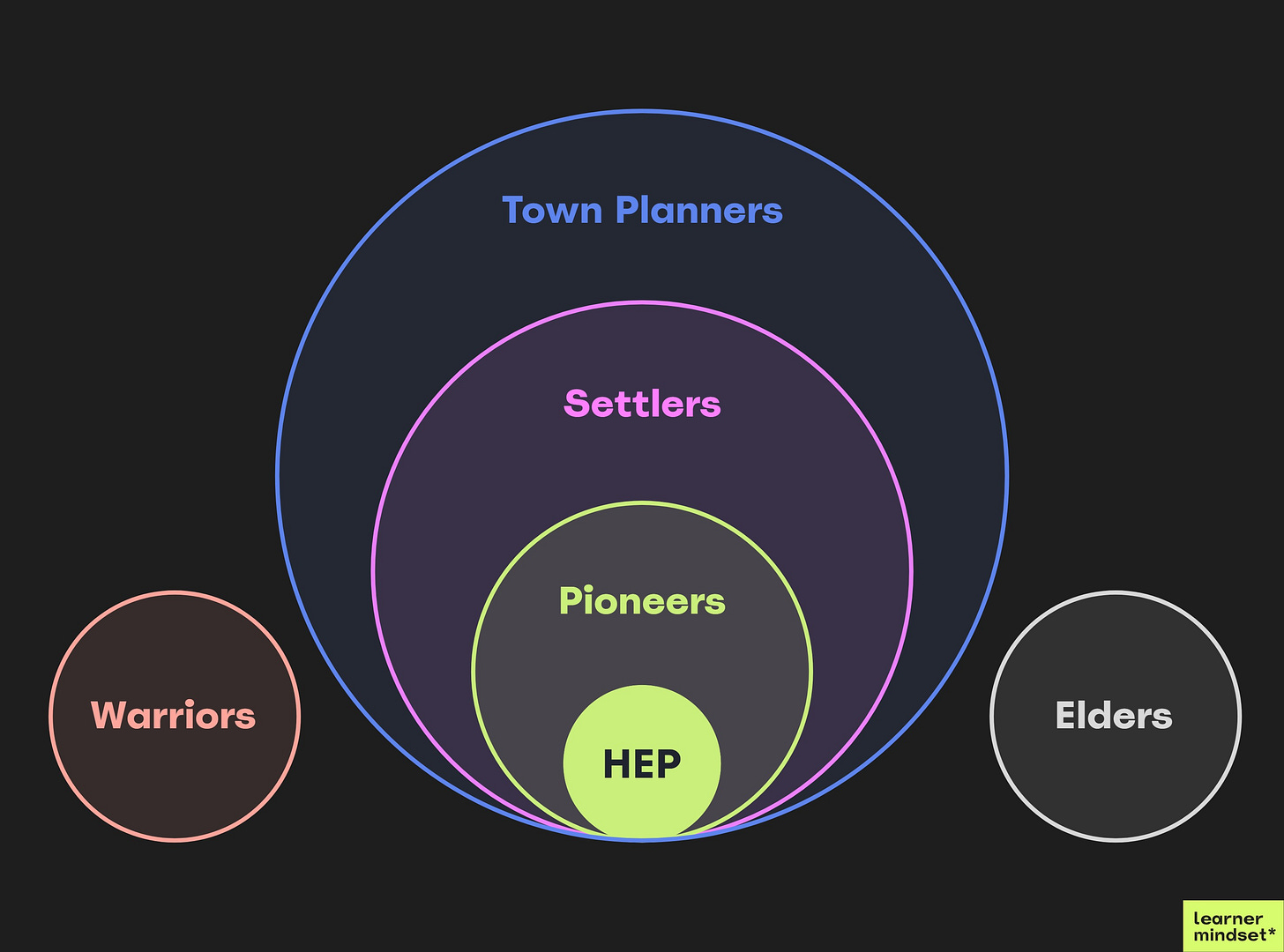
Pioneers
Pioneers are exceptionally talented individuals. They are one of the first archetypes that are really close to the HEP. They either tend to show up the earliest, or be in the right time and the right place when the HEP emerges. Pioneers possess the keen ability to delve into unexplored territories and ideas, i.e., the uncharted abyss. Even though their experiments may not always be successful, their visionary ideas lay the groundwork for future advancements. The ideas they conjure are unconventional, and their mode of innovation is primarily foundational research. Their work may often leave others bewildered and questioning. Historically, they were misunderstood and even persecuted. Their contributions can be seen in important inventions such as the earliest sources of electricity (Baghdad Battery, 224–650 AD), and the first digital computer (Z3, 1941).
Settlers
Settlers are also highly skilled people who can transform raw, innovative concepts into something practical and beneficial for a broader audience. They inspire trust and understanding. They manage to turn potential futures into reality by refining prototypes into products that are viable in the marketplace. They focus on applied research, and their primary role is to actualize potentialities hinted at by the Pioneers. Furthermore, they have been responsible for significant advancements, such as the production of the first computer products (at IBM).
Town Planner
Town Planners, being equally bright, are specialists at industrializing products, leveraging economies of scale. The products they create are trustworthy and reliable. They strive to enhance efficiency, performance, economy, and utility of products, making them more accessible. They build upon the services established by pioneers. Their mode of innovation is industrial research, transforming existing technology or processes into commodities or utilities. They are akin to industrial titans that we rely on, these are ‘The Edisons’ of Electricity.

Stop for a second and consider which camp suits your particular talents and skills best. I would like you to spend some time and answer the question — which archetype can you relate to the most? A creative and solution oriented Pioneer? Perhaps the analytical and problem-solving Settler? Or, you are fantastic at optimizing processes and change management — which makes you a perfect Town Planner. If you want to catch the next HEP, you need to know what personal strengths, talents, and skills you will need to call upon.
Warriors and Elders
Once you arrive at the HEP site — and you pay attention, you will begin to notice some challenges. This section is inspired in part by the great thinker and futurist, Jordan Hall.
One of the unfortunate characteristics of HEPs is that they bring about the speculation in its harmful sense. The notion of “speculation” has two meanings. One is imagining possibilities and investing time/energy to make them real, even if you fail. This is crucial for anything meaningful. The other meaning is exploiting the gap between possibility and reality through simulation and confidence schemes.
When anything new emerges, it attracts artists who can perceive the vision and work to actualize it, as well as parasites who simulate the vision without substance. The masses in between can't always distinguish the real from the fake. Unfortunately, the parasites are skilled at manipulation, while the artists just want to focus on their work.
We haven't figured out how to consistently orient attention towards the substantive work, rather than the hype. The artists aren't warriors – they don't fight the parasites. So we need to bring warriors alongside artists to defend against manipulation and keep focus on the real innovations.
Younger people like younger millennials and Gen Z are more susceptible to naive utopianism or dystopianism about new technologies because they lack life experience and wisdom.
Those who came of age with the early internet had no elders to guide them – it was just their own generation figuring it out. The slightly older versions of them were cynical, while the younger ones were naive utopians, overly optimistic about technology's potential.
Without intergenerational guidance, naive utopians tend to confuse possibilities with near certainties, and think major changes are coming faster than they really are.
That’s why we need Elders when dealing with HEPs. Elders who have been through cycles of technological hype could provide us with grounded wisdom. They can appreciate the ideals and potential, but also know the pitfalls from experience. They can distinguish naive utopianism from commitment to real progress up the mountain.
What we need is integration between generations – for elders to steward younger generations who are excited about new innovations. The elders are not cynical, but realistic about the work it takes to manifest visions. Their guidance could temper the naïveté and ground the innovations in wisdom.
How To Begin
As a closing note, I have one final recommendation for you.
If you want to be prepared for the Next Big Thing, it’s likely you will need to make some life adjustments. You can use the FAST method to start:
Find – Find exciting subjects that catch your curiosity.
Adapt – Master the skill of swift and effective learning.
Scan – Keep an eye on the latest trends and popular topics.
Try – Make room in your life for experimentation and trying out novel things.
If you haven’t figured out your archetype yet, don’t worry. It will become clearer once you apply yourself, and begin to see what’s happening around you through the lenses provided in this article. If you need more guidance – browse the Learner Mindset for some relevant systems and methods.
Leave a comment and let me know if you would be interested in further developing the skills required to thrive in The Next Big Thing – whatever it will be.
If you are into these sorts of reflections, I highly encourage you to watch “The Zero Theorem” movie starring Christoph Waltz, and read the “Determined” book by Robert Sapolsky. You're in for a treat.



